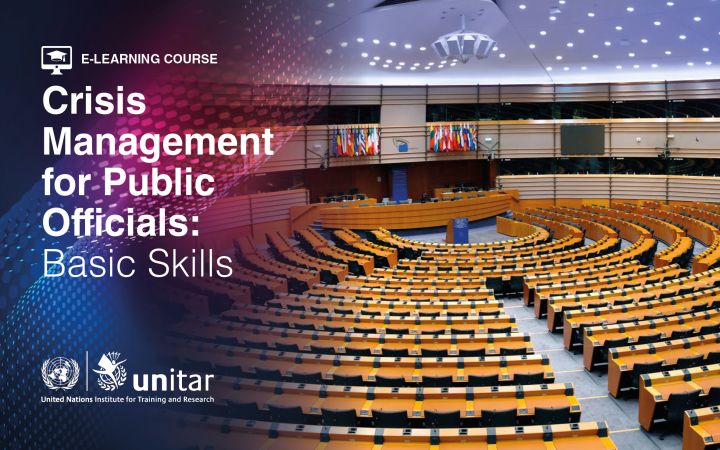Course on Crisis Management for Public Officials: Launch
22 October 2020, Geneva, Switzerland - Governments around the world have been at the forefront in the fight against global crises, including the ongoing COVID-19 pandemic. However, the disruptive nature of the COVID-19 crisis has exposed a deeper level of vulnerability in our communities, by creating unprecedented socio-economic and cultural implications. During the crisis, public servants have been faced with the unparalleled urgency to formulate new ways of thinking, adapt to new realities and prepare for the unknown future.
Due to this urgent need to support Government officials, UNITAR’s Division for People and Social Inclusion is launching its new course on Monday the 2nd of November 2020, entitled: ‘Crisis Management for Public Officials: The Skills Necessary to Effectively Manage a Crisis and Continually Deliver to the People you Serve’ (also known as: ‘Crisis Management for Public Officials: Basic Skills’). The purpose of the e-learning course is to develop the competences required to overcome the challenges of managing crises, enhance the understanding of the consequences of crises, as well as create a platform for public sector officials to learn from crisis management responses, in order to effectively prepare for future crises. At the end of the course, we envisage that the participants will be able to: a) recognize some of the current challenges faced by public officials due to COVID-19; b) identify contextual challenges due to a crisis and ensure business as usual policies in the public sector; c) discuss different processes involved in crisis management, including soft skills related to communication strategies and leadership; and d) respond to governance challenges in post-crisis situations, as well as prepare for future crises.
UNITAR continues to provide innovative learning solutions to individuals, organizations and institutions to enhance global decision-making and support in the implementation of the Sustainable Development Goals (SDGs). Moreover, at the core of achieving the SDGs, is the need to build the resilience of communities in order to be able to avert a crisis, or limit the potential negative impact of crises. SDGs Target 1.5 focuses on building the resilience of the poor and those in vulnerable situations. Similarly, Target 3.D prioritizes early warning, risk reduction and management of national and global health risks. In addition, opportunities for global partnership and cooperation to build resilience are presented in SDG 17, as well as the Sendai Framework for Disaster Risk Reduction.


